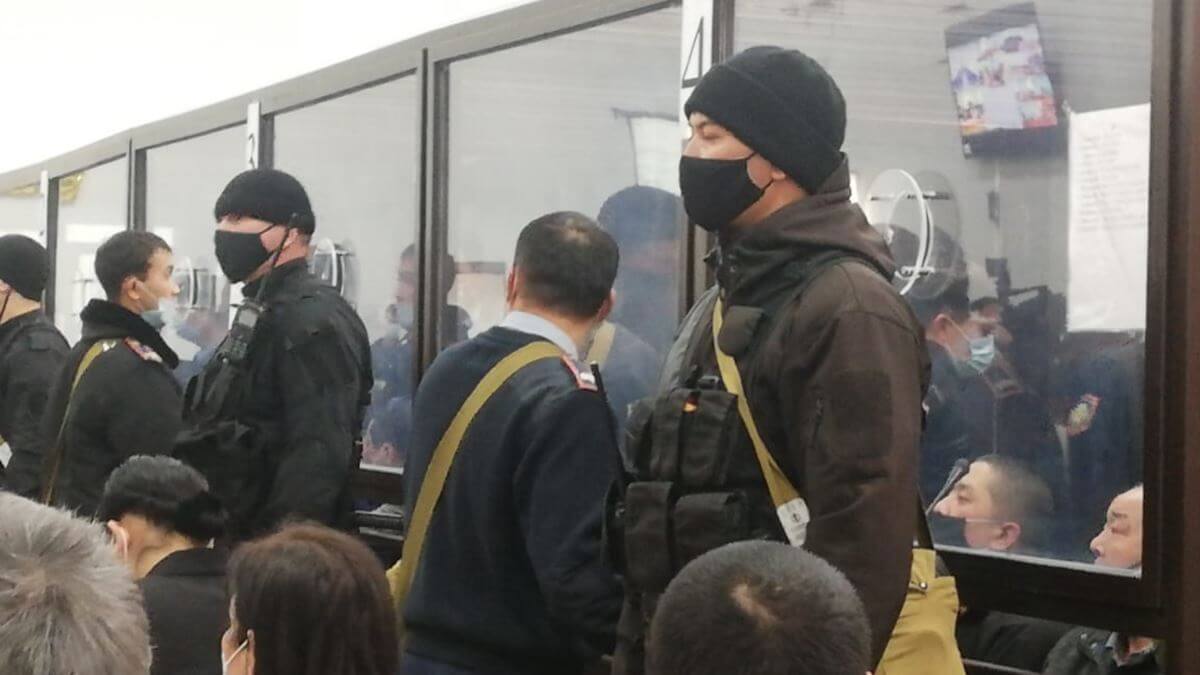Following the deadly ethnic clashes between ethnic Kazakhs and Kazakh citizens from the ethnic Dungan minority in February, 50 people have gone on trial in Kazakhstan’s southern Zhambyl region. The proceedings began on Thursday, inside a detention centre located in the regional capital, Taraz, and were convened by Judge Aidar Zambeev.
The defendants were charged with taking part in public disorder, the possession of illegal weapons, robbery, and issuing threats during the clashes, which left 11 people dead and dozens injured, including 19 police officers. The riots on February 7 in the rural Korday District in the country’s south also destroyed nearly 30 houses, 17 commercial buildings, and 47 vehicles, forcing nearly 20,000 people, mostly Dungans, to flee the villages where the violence erupted. Those that fled reportedly took refuge in the neighbouring Kyrgyz region of Chui, but Kazakh officials at the time said that a majority of the displaced Dungans returned to Kazakhstan several days later.
The Dungans are a Muslim minority of Han Chinese descent and make up just about 0.4% of Kazakhstan’s population. Most of them live in the Korday district which borders Kyrgyzstan, which is home to about 64,000 Dungan people. According to observers, the two main reasons behind the ethnic clashes were rising nationalism and the lack of integration of ethnic minorities in Kazakhstan.
Though external media sources widely portrayed the February events as an ethnically-motivated pogrom perpetrated by ethnic Kazakhs against Dungans, Kazakh authorities have yet not recognised them as riots based on sectarian or racial differences. Instead, they have called the incident a “mass brawl” or “a squabble between criminals.”
Critics have also argued that the investigations of the clashes lacked transparency and appeared to be one-sided and in favour of the ethnic Kazakhs. Initially, 47 people were taken into custody for being involved in the fighting. Of those, 44 Kazakhs were released and the three Dungans were detained. As of May 13, of the 25 people arrested for the events on February, 17 were Dungans.
To this end, a detailed chronology of arrests, searches, and interrogations conducted in gross violation of the law was presented by the Dungan community to the UN Human Rights Treaty Bodies and Special Procedures, and international non-governmental human rights organisations on May 20, 2020.
Over 50 On Trial In Kazakhstan Following Ethnic Clashes Between Ethnic Kazakhs and Dungans
The proceedings began on December 3, inside a detention center located in the regional capital, Taraz.
December 5, 2020

SOURCE: RFE/RL
